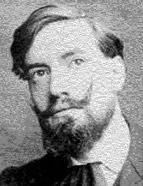

While in "A Tomada e Ocupação de Ceuta", 1925, the secrecy theory was not used as an argument - the novelty was the attention to the history of prices based on the works of Thorold Rogers and d'Avenel -, it later became the focus of Le Traité de Tordesillas et la Découverte de l'Amérique, 1926, which was subtitled Conditions physiques, scientifiques et économiques qui ont pu influencer la découverte de l'Amérique.
Cortesão was attentive to the work of geographers: he was familiar with and repeatedly used the geography of Jean Brunhes and Camille Vallaux (La Geographie de l'Histoire) and he read the Annales de Géographie of this science's golden period in France. In addition, he paid particular attention to the studies of the wind and current charts of the American navy, immersing himself in the complex studies of maritime navigation. This was the making of the geographer in history. In 1944 he acknowledged that he had specialised in "studies of the history of geography" (Cabral e as origens do Brasil [Cabral and the origins of Brazil] , p. 5). He had also been resorting to French sociology since 1926. Drawing on Philippe de Champault, "one of the most penetrating disciples of 'Social Science'" he borrowed the following social law: whenever merchant carriers discovered an advantageous route to new countries, offering rich products, they did everything within their power to monopolise its use, keeping the route for themselves and their commercial group". From here, and guided by this Durkheim disciple, he enunciated a series of rules to be observed by all peoples in a similar situation: "a) to make [the trade of rich products and their routes] a monopoly; b) to close the routes leading thereto by treaties and prohibitive legends, or by persecuting all transgressors; c) to make their entire political and commercial action secret, as also the facts referring thereto; d) to keep a close eye on foreigners abroad and within, and exclude them from their social group." (Le Traité..., p. 24).
Champault's Étude géographique, historique et sociale par une méthode nouvelle came to suggest the analytical instruments Cortesão believed he needed. The official secrecy explained the lack of documents supporting the discoveries and advances in the knowledge of the world, stemming from a defence of the economic monopoly. Until his last work – Os Descobrimentos Portugueses [The Portuguese Discoveries] (1960) - Cortesão's formulation of what he called the sociological laws of secrecy remained unchanged, even in form. From the application of this explanatory process to the Portuguese maritime discoveries - where it has been and will continue to be discussed – there was a shift to its generalisation. In this architecture, the problem of the sources and their rigorous treatment became fundamental.
